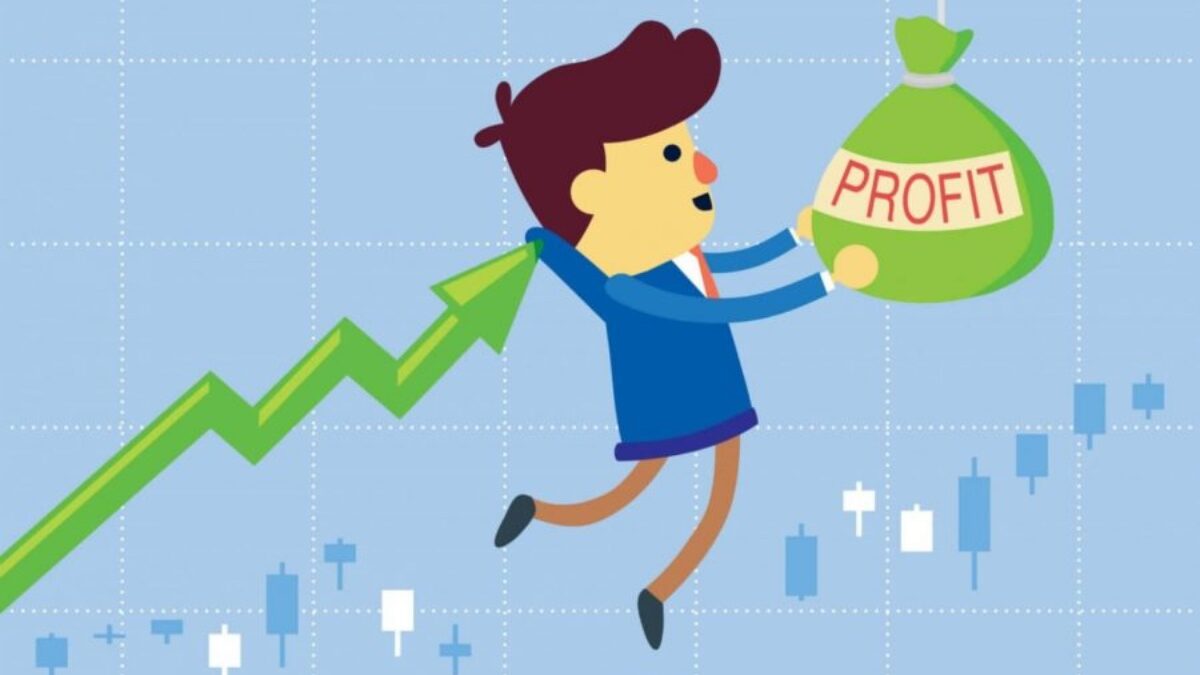Profits With Forex: Forex trading attempts to predict the currency that will rise or fall against the other currency.
So, how to know when to buy or sell a currency pair?
You will need to bear some fundamental analysis to decide whether to buy or sell a specific currency pair.
There are various economic factors at play that move the currency exchange rates.
Since each currency belongs to a country, fundamental analysis focuses on the overall state of that country’s economy. It takes into consideration productivity, employment, manufacturing, international trade, and interest rates.
If economics is not your thing, we have got your back.
First, let’s look at a currency pair example to understand it better:
Table of Contents
EUR/USD
Since the euro is the base currency here, it is the base for the buy/sell. If you think that the US economy will drop further and it is looking bad for the US dollar, you place a buy EUR/USD order.
This means you are buying euros and expecting them to rise versus the US dollar. On the other hand, if you expect the euro to weaken against the US dollar, you will execute a sell EUR/USD order. This is selling euros while expecting it to drop versus the US dollar.
Trading in “Lots”
When trading currencies, you will not buy or sell just one euro, so they usually come in “lots” of:
- 1,000 units of currency (micro lot)
- 10,000 units (mini lot)
- 100,000 units (standard lot)
Margin Trading
Margin allows you to trade for the amount you don’t have. You use leverage to trade currencies. Trading with leverage means you do not need to pay 10,000 US dollars at the moment; you only have to deposit a certain small amount called the margin.
Leverage is the ratio of the position or transaction size to the actual cash or the trading capital used for margin.
For example, 50:1 leverage or a 2% margin requirement means you need $2,000 of margin for a $100,000 position size.
Margin trading is opening large position sizes with only a fraction of the capital you actually need.
Rollover
A “rollover fee” or a “swap fee” is levied for the positions open at your broker’s time off. As a trader, you might have to pay or earn a daily rollover fee depending on the positions you have open.
If you want to avoid this interest on your positions, close them before 5:00 pm ET, the end of the market day. Currency trading is usually borrowing one currency to buy another; interest rollover charges are a part of currency trading.
You have to pay interest on the currency you borrowed, and you earn interest on the one that is bought.
If the currency you bought has a higher interest rate than the one you are borrowing, the net interest rate differential turns positive (i.e., USD/JPY), and you earn interest as a result.
On the contrary, if the interest rate differential is negative, then you have to pay. Retail forex brokers adjust often adjust their rollover rates based on factors like account leverage and interbank lending rates.
Please check out the specific rollover rates and crediting/debiting procedures of your broker.
Does Forex Trading Make You Rich?
Before you consider actually trading currencies, consider the following:
No forex trader is exempt from losses.
Nearly 90% of traders lose money and mostly due to a lack of planning, training discipline, and a trading edge. To top it all, poor management rules can lead one right to failure. If losing is not something you are not okay with, forex trading will be quite a hard ride for you since all traders lose a trade at some point in time.
Forex trading is not for everyone.
If you are unemployed, have a low income, or are knee-deep in debt, forex trading is not something you want to get into. No matter how enticing it may sound, do not fall for a forex scam unless you are 100% sure about them.
You need $10,000 of trading capital at the very least that you can afford to lose.
You cannot simply start an account with a few hundred dollars and expect to turn into a gazillionaire.
The forex market is popular for speculation given its gigantic size, liquidity, and the tendency of currencies to move in strong trends.
You can’t “get rich quick,” like some forex scams will like you to believe when it comes to short-term trading either, and it is surely not for amateurs. To make big bucks, you also need to put in big bucks.
If you are after a trading strategy that involves taking a massive risk, it also means inconsistent trading performance and large losses.
Conclusion
Forex trading takes time to get around and truly learn. One can make money here if they are skilled enough and disciplined. But it does not in any way mean that you will be successful overnight. Expert traders with experience still incur periodic losses. There does not exist any shortcut to forex trading; if there are, then they are forex scams. You need practice and experience to master the skill of forex trading.
Also Read: Never Avoid These 3 Proven Strategies to Increase B2B Leads
Related posts
Hot Topics
Solid Lubricant – Tungsten Disulfide
In machines where two parts are moving in relative motion they rub against each other which causes friction and wear….
2025 SEO Guide: 8 Game-Changing Trends You Can’t Ignore
Hey there! I’ve been in the SEO trenches for years, and let me tell you – 2025 is bringing some…



